News & Events | About PKU News | Contact | Site Search
Peking University, Mar. 22, 2013: Wang Enge, PhD '90, a prestigious physicist and member of the Chinese Academy of Sciences (CAS), was appointed president of Peking University (PKU/Beida), succeeding outgoing President Zhou Qifeng.
The decision, issued by the Central Committee of the Communist Party of China and the State Council, was announced at a gathering of PKU teaching and administrative staff on March 22.
Wang, 56, has been the 17th president of the university since 1912, when it changed its name from “Jingshi Daxuetang,” or the Imperial University of Peking, to “Beijing Daxuexiao” with Yan Fu as president.
Wang was named executive vice president in June 2012.
The newly appointed president elaborated on the university's process to build a "world-class university" at the meeting on March 22. "Empty talk will but hinder our development; a university can prosper only through solid work," said Wang.
The criterion of "world-class" is not rigidly defined; “Certainly it cannot be assessed by a simple index or even be described with mots justes,” Wang said.
“When our scholars earn the hearty respect of peers from home and abroad based on their academic achievements; when our graduates, whatever their major, win the trust and recognition based on their capacity and merit, whatever post they are holding wheresoever; when our university has resolved significant problems that our nation urgently face, made continuous innovations for the human civilization, and taken the lead in social development; when our faculty, students, alumni, peers, friends, and people all over the world no matter knowing us well or not, can hold us in high respect as mentioning the word ‘Beida,’ such a Beida will fully deserve to be a world-class university,” Wang pointed out.
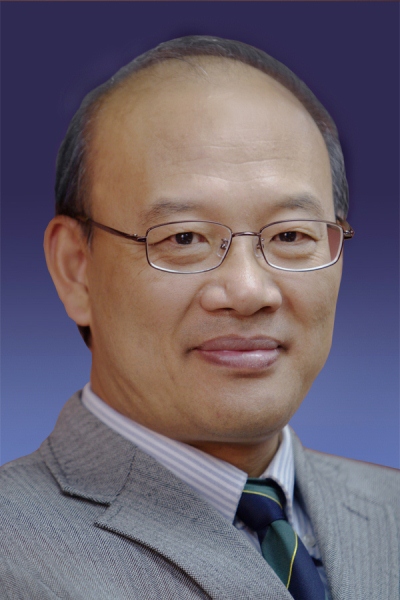
PKU President Wang Enge
A native of Shenyang, northeast China’s Liaoning Province, Wang graduated in theoretical physics from Liaoning University in 1982 and obtained his PhD in condensed matter physics from the PKU Physics Department in 1990.
Like his predecessors Zhou Qifeng, Xu Zhihong, and Chen Jia’er, President Wang is a seasoned scientist with overseas research experiences. Prior to the beginning of his academic career in 1995 as a researcher at the CAS Institute of Physics, Wang was an exchanging student, a postdoctoral fellow, and a research scientist at Princeton University, L'Institut d'Electronique, de Microélectronique et de Nanotechnologie, and the University of Houston.
He was director of the CAS Institute of Physics from 1999 to 2007, director the Beijing National Laboratory for Condensed Matter Physics from 2004 to 2009, executive vice president of the CAS Graduate University and deputy secretary-general of CAS from 2008 to 2009.
Professor Wang returned to PKU in 2009, and served dean of the School of Physics and of the Graduate School until 2011, when he was appointed provost and vice president for teaching and research.
Wang was elected member of CAS in 2007, the top honor for a Chinese scientist. He has been a member of the World Academy of Sciences for the Advancement of Science in Developing Countries (then named Academy of Sciences for the Developing World) since 2008 and a fellow of the American Physical Society since 2006.
A researcher on surface physics, Wang’s approach is a combination of atomistic simulation of nonequilibrium growth and chemical vapor deposition of light-element nanomaterials. The study primarily involves formation and decay mechanisms of surface-based novel structures. Wang’s research also covers water behaviors in confinement.
Wang has published over 260 papers on peer-reviewed journals including Science, Nature, PRL, and JACS, delivered over 70 keynote/plenary/invited talks, and held five patents. His entire publications have been cited for over 5,000 times with h-index of 36.
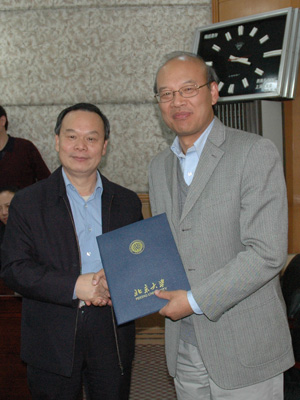
Wang Enge appointed dean of the PKU Graduate School in 2009 (File photo)
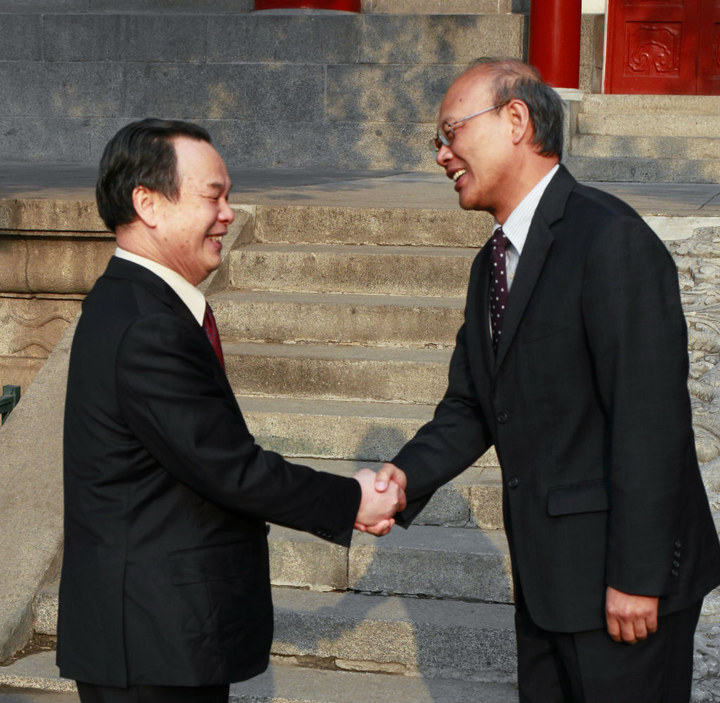
Zhou Qifeng and Wang Enge (Photo/Wang Yan)
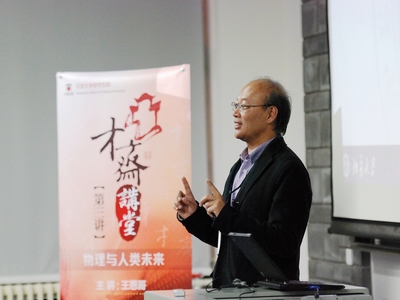
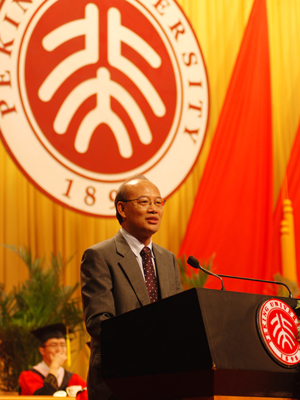
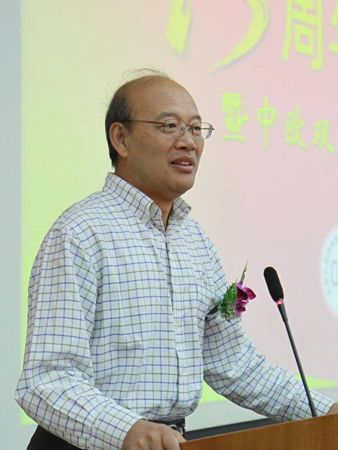
Professor Wang Enge (File photos)
Edited by: Jacques
Source: Portal of Peking University (Chinese)